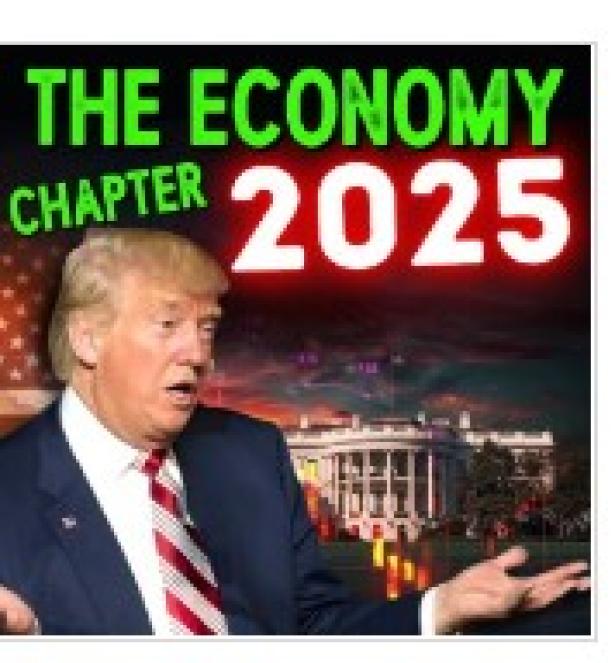The stock market, which is where rich people live, has been climbing since Election Day. On November 6, the day Trump was declared the winner, the Dow rose 3.6 percent; the S&P 500 scored its biggest gain in two years; and the world’s 10 richest people, nine of whom live in the United States, saw their wealth increase by a combined $63.5 billion. Over the month of November, the S&P 500 rose 5.7 percent. Stocks fell in December after the Fed signaled it would ratchet back rate cuts, but as of December 18, U.S. equities were still up 29 percent for the year.
The economy, on the other hand, is starting to falter. The Fed ratcheted back future rate cuts because Trump keeps threatening to slap tariffs on every conceivable import. On Friday, Trump boasted on Truth Social: “I told the European Union that they must make up their tremendous deficit with the United States by the large scale purchase of our oil and gas. Otherwise, it is TARIFFS all the way!” The United States is the largest exporter of oil to the EU already, and the European Commission previously floated the idea of buying more liquefied natural gas from the United States (because it’s cheaper than Russian LNG). So it’s quite possible Trump is merely trying to take credit for something that’s happening anyway. But if Trump aims to push the EU further, he could start a trade war.
Everybody knows that Trump is all about reviving American manufacturing. But the National Association of Manufacturers, whose president, Jay Timmons, praised Trump in 2017 as “a true champion for our industry,” forecast in a postelection survey that in 2025 capital investment would grow only 1.6 percent. “That’s not particularly robust,” Timmons told Bloomberg’s Mark Niquette. In a December forecast, another manufacturing trade group, the Institute for Supply Management, predicted a more robust increase of 5.2 percent. But that’s compared to an increase of 5.6 percent this calendar year—when, Niquette pointed out, high interest rates inhibited investment.
Vanguard is an investment management firm and therefore part of the rich-people ecosystem, not the economy. But in addition to forecasting market trends it forecasts bona fide economic trends, and late last month it said gross domestic product growth, which has been 3 percent or higher under the supposedly ruinous economic policies of President Joe Biden, will fall to 2.7 percent next year under Trump. And that’s assuming Trump is mostly blowing smoke about tariffs and a mass roundup of immigrants. If he isn’t blowing smoke, says Vanguard, then GDP growth will be more like 2 percent.
Like the Fed, Vanguard is worried that Trump’s trade policies will increase so-called “core” inflation, or inflation minus volatile food and energy costs. On Friday the Commerce Department’s personal consumption expenditures index, which the Fed and Vanguard both prefer to the Labor Department’s consumer price index, showed core inflation to be 2.8 percent in November, same as it was in October. Trump promised in July that if voters elected him “inflation will vanish completely.” But Vanguard says that “inflation will remain above 2.5 percent for most of 2025.” Even Trump has stopped pretending he’ll conquer inflation, telling Eric Cortellessa in his Time “Person of the Year” interview, “It’s hard to bring things down once they’re up.”
In that same July speech, Trump said, “Incomes will skyrocket.” But according to the website Trading Economics, which compiles statistics from official sources, nominal wage growth will fall from its October level of 5.6 percent (and a projected 5.4 percent for the final quarter of 2024) to 4.7 percent, 3.5 percent, and 2.5 percent during the respective first, second, and third quarters of 2025. If Vanguard is right that inflation won’t fall below 2.5 percent next year, then real wages will either stop growing next year or start falling. Under Biden, real median and real average wages have been rising for two and a half years.
Of course, these are all predictions; we can’t know precisely what’s coming in 2025. But my own view is that these respectable calculations err on the side of optimism. The pros predict that the economy will fare somewhat worse. Freed of their imperative to give every benefit of the doubt, I believe the economy will tank. Your investments may appreciate in value, which is all the oligarchs really care about. But this time next year, I doubt your boss will promise you a raise for 2026. Instead, he may tell you to clean out your desk.
[Timothy Noah is a New Republic staff writer and author of The Great Divergence: America’s Growing Inequality Crisis and What We Can Do About It.]


Spread the word